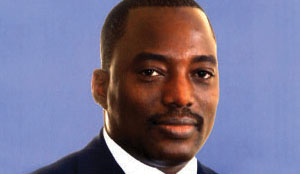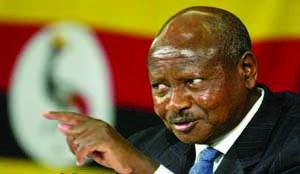By PERPETUAL SICHIKWENKWE –
THE 17th Common Market for Southern African (COMESA) Summit recently held in the Democratic Republic of Congo (DRC) brought to the fore, the need for the region to prioritise measures of enhancing Micro, Small and Medium Enterprises (MSMES) to spur economic growth and improve living standards of people.
The summit which was held from February 26-27, in the DRC’s capital, Kinshasa under the theme “Consolidating Intra-COMESA Trade through Micro, Small and Medium Enterprise Development” was attended by seven heads of States among them, Zambia’s President Michael Sata.
The Presidents together with other heads of Government representatives had one thing in common, to strategise the way forward for COMESA and especially, how MSMES could be boosted for trade and investment to improve the living standards of people in the region.
The summit focused on among others areas, education in science and technology for social transformation, peace and security and infrastructure development.
It also touched on the movement of people, and industrialisation that would involve building processing industries to add value.
Mr Sata who gave a key note at the summit, did not miss his words when he called on the COMESA region to step up efforts to empower MSMEs so that they could contribute to industrialisation, job creation and poverty reduction.
The President who was accompanied by his wife Christine Kaseba and his assistance for Press and Public Relations George Chellah said MSMEs form the bedrock of economic growth as such they must be supported by member States.
The President who committed Zambia’s wavering support to DRC during its tenure of chairmanship, said Zambia had at national level embarked on a number of initiatives to grow MSMEs because they were part of the economy.
Mr Sata urged member States to start developing value-adding industries to increase prospects of increasing intra-COMESA trade above the seven per cent.
He said that the COMESA region was endowed with an abundance of natural resources and human development which could be used to accelerate development for individual and member countries.
Mr Sata said that Zambia would remain committed to supporting COMESA’s regional integration agenda.
Laurent Joseph Kabila, the host President said in his welcoming remarks that the region had reached a time in its history for making a difference in its peoples’ lives.
Mr Kabila said that the Summit was a very important occasion which had availed yet another opportunity for member Sates to advance the COMESA regional integration programmes.
“The power that COMESA has as an institution cannot be ignored, but rather should be channelled to the greater good of its people” Mr Kabila said.
As the largest Free Trade Area in Africa, with more than 65 million people and a combined GDP of US $425 billion, and a land mass of 16.5 million square kilometres covering enormous natural resources, a 600 per cent increase in intra-regional trade over the last decade, and among the highest returns on investment in the world, COMESA is an instrument and a force for development.
Immediate past COMESA chair, Yoweri Museveni called member States to stop exporting raw materials because by doing so, they were donating jobs and money to the outside countries instead of developing the region.
Mr Museveni said that regional integration provided a large market that supports significant levels of trade and investment.
He expressed concern over the balkanisation of Africa which he said had resulted in its weakness adding that there was need for COMESA to bridge the gap created by the balkanisation of Africa.
He called for robust programmes to promote unity and strength.
Mr Museveni called for focused programmes to build on entrepreneurship, access to finance and infrastructural development, covering railways, roads, energy and ICT
Secretary General of UNCTAD, Mukhisa Kituyi urged member states to intensify their efforts in improving intra-COMESA trade by focusing on industrialisation for value addition and infrastructure development.
Dr Kituyi also called on the region further build capacity in the multi-lateral trade negotiations and the post-2015 sustainable development agenda; and its implications on trade in the COMESA region.
Deputy chairperson of the African Union Commission Erastus Mwencha called on Africa to remain vigilant and fully engaged in global processes.
Dr Mwencha said the region should also engage on-going negotiations on climate change, the post 2015 development agenda, the World Trade Organisation (WTO ) trade agreement and others.
He said that it was important for the regions that were concluding Economic Partnership Agreement (EPA) negotiations to ensure that the agreements did not hamper or undermine the continental integration agenda.
“Africa should undertake a “reality check” on the outcomes of recent Bali WTO Ministerial Conference, and come up with a common strategy on how Africa will implement the “Bali Package,” Dr Mwencha said.
And in their communiqué, the COMESA the member States noted that intra-COMESA trade had increased six times to $19.3 billion by the end of 2012, since the establishment of the Free Trade Area (FTA) in 2000 when the trade stood at $3.1 billion.
They also noted with appreciation that 40 per cent of intra COMESA Trade was through MSMEs which was contributing to economic growth, wealth creation and improving the living standards of people.
On the MSMEs and women in business, the member states adopted the COMESA MSME Strategy and commended the positive impact of the COMESA MSMEs Cluster Programme.
The region said the programmme has contributed towards national and regional value chains and business partnerships among MSMEs.
Member States were urged to support women entrepreneurs by increasing their inclusion and participation in policy making bodies such as corporate boards.
They directed the Joint Committee of Ministers of Finance and Central Bank Governors to consider the proposal of setting up of a COMESA MSME Fund and a Women Economic Empowerment Fund.
They said the moves should facilitate access to affordable financing and capacity building by ensuring the inclusion of women and the youth.
The COMESA regional leaders did not forget to thank Mr Museveni for illustrious and outstanding leadership of COMESA for the period of 2012-2013.
On the long side of the Heads of State and Government summit, the first ladies of the region held a seventh COMESA First Spouses ‘ round table where Dr Kaseba called for member states to involve women as a catalyst to improve their standard of living.
Dr Kaseba said that there was need for the COMESA region to examine the gender barriers that cause women exclusion from entrepreneurship.
She called on the region to consider introducing a fund to help women in entrepreneurship.
Dr Kaseba said that direct financing sources and seed money to start up the MSMEs usually came from friends, professional contacts and families which were not sustainable.
She also called for scaling up of affirmative action for women entrepreneurs saying the MSMEs subsector was contributing significantly to job creation especially in areas were formal employment was no longer able to absorb job seekers.
Her DRC first lady counterpart, Marie Olive Lembe Kabila called on COMESA to work on the attainment of the millennium development goals especially those touching on education, health and maternal care.
Ms Kabila said it was time the region pushed for the strengthening of laws that would protect women against evil vices such as gender based violence.
The host first lady said added her voice calling for a special fund that would help women entrepreneurs.
The summits are held annually in various member states and usually, the country hosting the summit assumes the chairmanship of the Authority for the year.
The DRC summit witnessed the handover of instruments of power from Mr Museveni to Mr Kabila.
Next year’s COMESA summit is expected to be held in Ethiopia.








